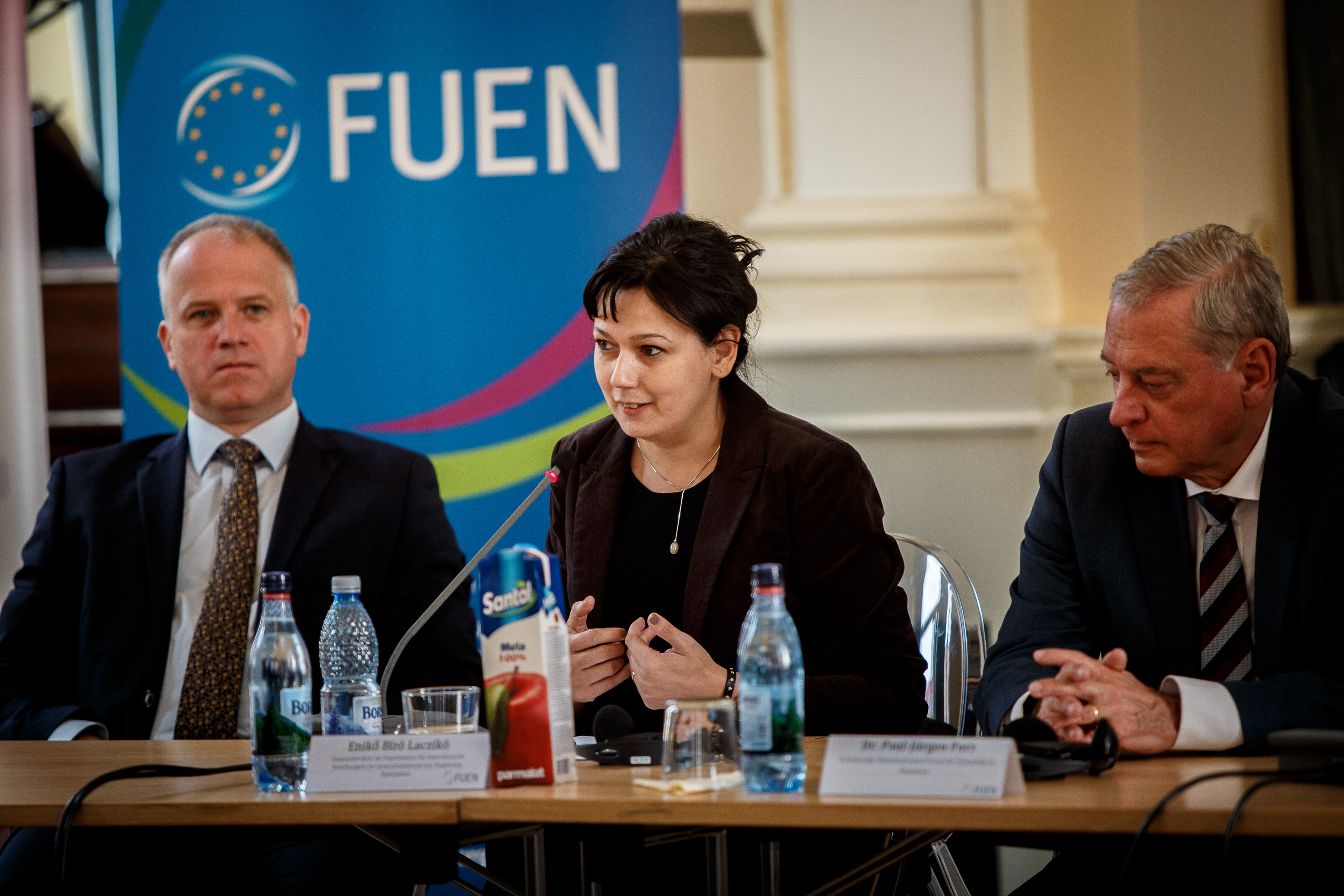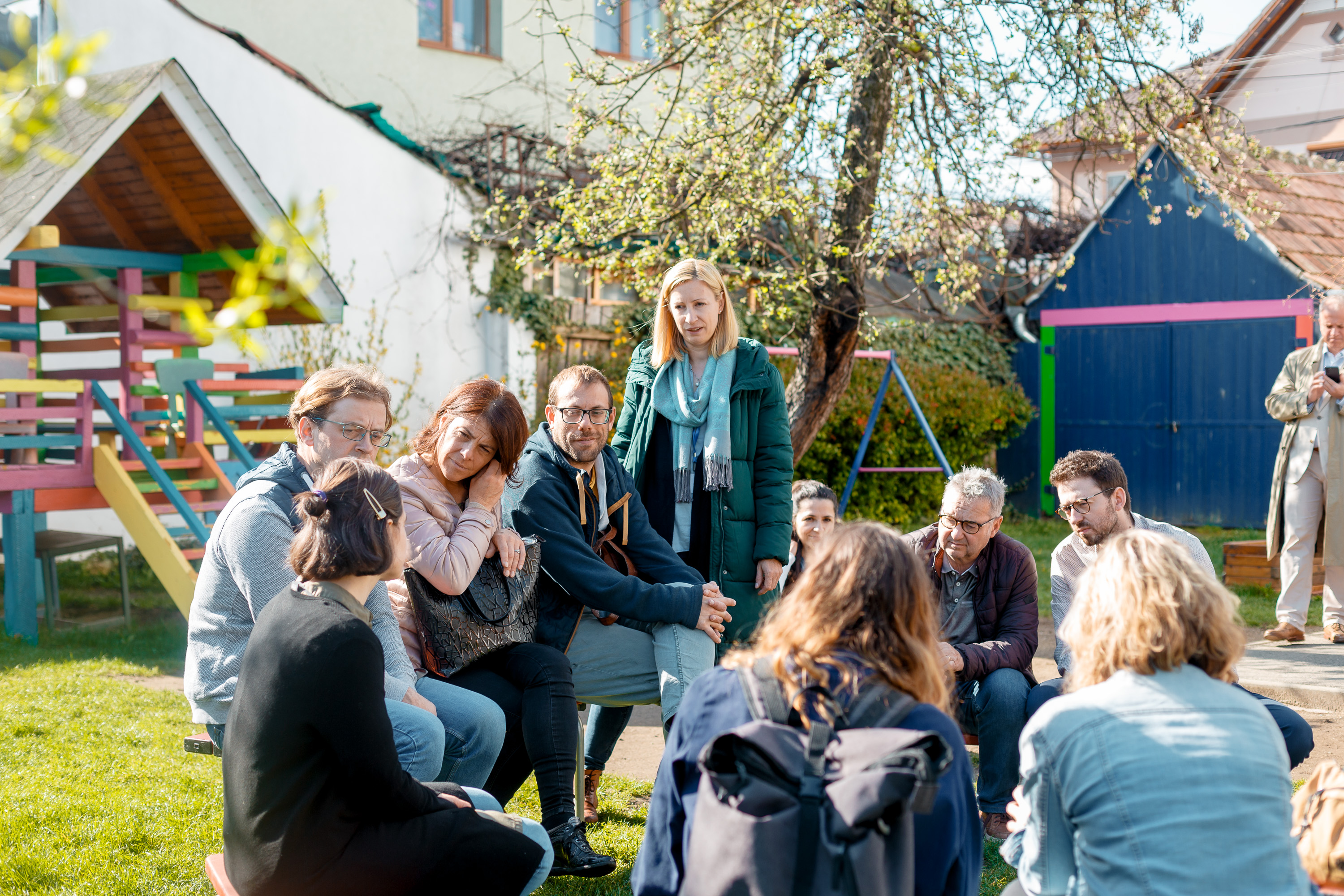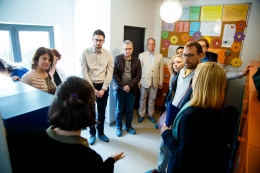Plataforma per la Llengua attended last week's annual meeting of the education working group of the FUEN (Federal Union of European Nationalities) one of the main organisations that defends national and language minorities. The meeting, which took place in the city of Sibiu (Hermanstadt, in German), in the historic region of Transylvania (Romania) between Tuesday 18 and Friday 21, made it possible to find out at first hand about the situation of the German minority and share experiences on education with other European minorities. Marc Guevara, technical manager of the education and universities department, was the organisation's representative at the meeting. He deplored the emergency situation of Catalan, especially among young people, setting out the situation of the language in the education system.
This year, the meeting, which has been held for the past five years, was in a city, Sibiu, with large German- and Hungarian-speaking minorities. It was organised with the support of the Democratic Forum of the Germans of Romania (DFDR), a political party that succeeded the Slovenes of Carinthia (Austria) as host of the meeting. As well as the German minority in Romania, the meeting also had representatives of language minorities, such as the Montenegrins of Albania, the Meskhetian Turks, the Russians of Estonia, the Slovaks and Germans of Hungary, the Lesguians of Russia, the Ladins of South Tyrol (Italy), the Alsatians of France, the Danes of Germany, the Germans of Poland, and the Sorbians of Lusatia (Germany).
.jpg)
Daniel Alfreider, vice-president of the FUEN network, and two representatives of the Democratic Forum of Germans in Romania (Dr Paul-Jürgen Porr, party president, and Benjamin Jósza, executive director) officially opened the meeting on the Wednesday. Also present were the Secretary of State from the Romanian Ministry of Education, Zoltán Kallós, and the Secretary of State from the Department of Interethnic Relations, Enikő Bíró Laczikó, who spoke about the challenges raised for national minorities by Romania's new education law. Then, Monika Hay, head of the host organisation's education committee, gave a talk on the education system for Germans in Romania.
On the 19th itself, in the afternoon, Dr Liana-Regina Iunesch, from the Education Department of the Faculty of Social Sciences and Humanities at the Lucian-Blaga University in Sibiu, led a session to explain how the transition from preschool to primary education affects language minorities. Each organisation explained its own situation and assessed the transition in each case, and Guevara, the representative of Plataforma per la Llengua, presented the figures on language use among students and young people. He warned of the emergency situation of Catalan in all the areas where it is spoken throughout the Spanish, French and Italian states.
 The Secretary of State of the Romanian Department of Interethnic Relations, Enikő Bíró Laczikó, speaks alongside Paul-Jürgen Porr, President of the Democratic Forum of Germans in Romania, on the right of the photo, and Benjamin Jósza, the party's Executive Director, on the left
The Secretary of State of the Romanian Department of Interethnic Relations, Enikő Bíró Laczikó, speaks alongside Paul-Jürgen Porr, President of the Democratic Forum of Germans in Romania, on the right of the photo, and Benjamin Jósza, the party's Executive Director, on the left
The following day, 20 April, there was a visit to two German schools in Sibiu, a kindergarten and a primary school, and members of the group went into classes to see for themselves the German immersion methodology used and the results obtained. The representatives of the minorities were also able to talk to the management teams and teaching staff of the centres, which allowed them to learn about their everyday lives and to ask questions about their teaching work.
Finally, on the afternoon of the 20th, a meeting was held with the different members of the groups to discuss the language minority issues that concern them, so these can be addressed at education group meetings in the coming years. The executive director of the Democratic Forum of Germans in Romania (DFDR), Benjamin Jósza, also offered a guided tour of the historic centre of Sibiu.

Plataforma per la Llengua, associate member of FUEN since last October and support member since 2018
Plataforma per la Llengua has been an associate member of the Federal Union of European National Communities (FUEN) since last October, after being a supporting member since 2018. FUEN is the main defender of national minorities and indigenous language groups in Europe, and brings together more than 100 organisations from 36 European states. The organisation began in Versailles in 1949 to provide a dignified role for different nations and minorities after the Second World War, and has recently coordinated initiatives such as the Minority Safepack, a European-wide legislative initiative to improve protection for minorities. FUEN is now the voice of national, ethnic, linguistic and religious minorities in international organisations such as the Organisation for Security and Cooperation in Europe (OSCE) or the United Nations (UN), where it has consultative status. In addition, the organisation also has participatory status in the European Union and the Council of Europe.






